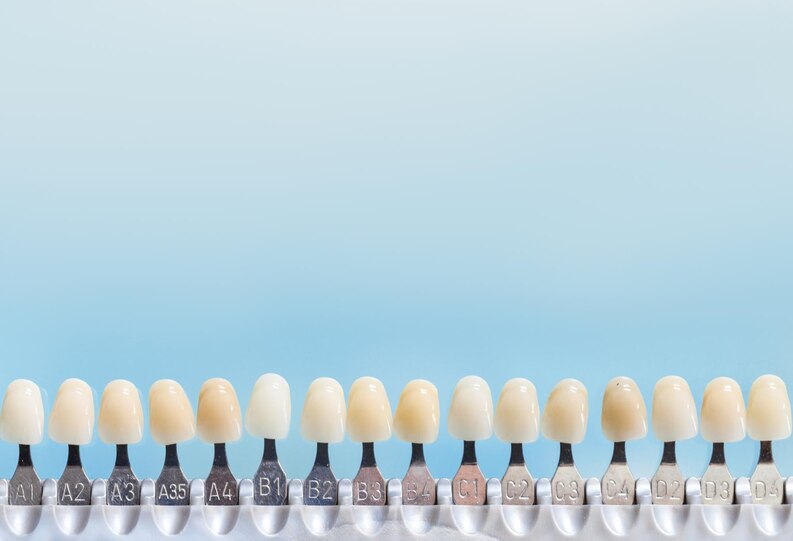Dental Veneers
Explore dental veneers: from porcelain to composite types, benefits, procedure, cost, and care. Enhance your smile with our expert guidance.

Dental Veneers
What Are Dental Veneers?
Dental veneers are thin, custom-made shells crafted of tooth-colored materials designed to cover the front surface of teeth. They are used to improve the appearance of teeth that may be discolored, worn down, chipped, broken, uneven, irregularly shaped, or have gaps between them.
Who is a Suitable Candidate for Dental Veneers?
Almost anyone desiring a change in their smile can be a candidate for dental veneers. Ideally, candidates should:
- Have healthy teeth and gums.
- Not habitually clench or grind their teeth.
- Have a sufficient amount of healthy enamel, as a small amount needs to be removed before placing veneers.
Types of Dental Veneers
Porcelain Veneers
Porcelain veneers are the most popular type due to their natural appearance and ability to resist stains. Crafted from a high-quality ceramic material, they often require the removal of a small amount of enamel.
Composite Veneers
Composite veneers are made from a resin material and are typically applied in one appointment. They are less expensive than porcelain veneers but are more prone to staining and do not last as long.

Benefits Of Dental Veneers?
- Achieve a natural-looking smile.
- Stain resistance.
- Can be color-matched to existing teeth.
- Less intrusive than crowns or braces.
- Can correct multiple flaws like discoloration, fractures, or gaps.
Dental Veneers Procedure: Before, During, and After
Before the Procedure
Your dentist will perform an initial examination, discuss your desired outcome, and take X-rays or impressions of your mouth and teeth.
During the Procedure
A small amount of enamel is removed from the tooth surface. An impression is then made to create your veneer. The veneer is then cemented to your tooth, and a special light beam is used to activate chemicals in the cement, causing it to harden quickly.
After the Procedure
Your teeth may be sensitive to hot and cold temperatures for a few days, but that will subside. A follow-up visit may be scheduled to check placement and comfort.
Are dental veneers permanent?
No, dental veneers are not permanent, but they are long-lasting. Once enamel is removed, it does not grow back, so teeth will always need to be protected with veneers or other restorations.
How long do dental veneers last? With proper care, porcelain veneers can last between 10 to 15 years, while composite veneers last between 5 to 7 years.
Can I get dental veneers if I have dental issues or conditions?
People with tooth decay, gum disease, or other dental issues should address these problems before getting veneers. It’s essential to have a healthy foundation for veneers.
Do dental veneers require special care?
Veneers don’t require special care. Continue good oral hygiene practices, including brushing, flossing, and regular dental check-ups.
Dental Veneers Cost
The cost of veneers varies based on material, location, and the dentist’s expertise. Porcelain veneers tend to be more expensive than composite veneers. Always consult with your dentist for a detailed estimate.
Why choose us?
With our experienced team, state-of-the-art facilities, and commitment to patient satisfaction, we strive to provide the best dental veneer services tailored to meet individual needs. We understand the transformative power of a beautiful smile and ensure every patient leaves our clinic feeling confident and radiant.